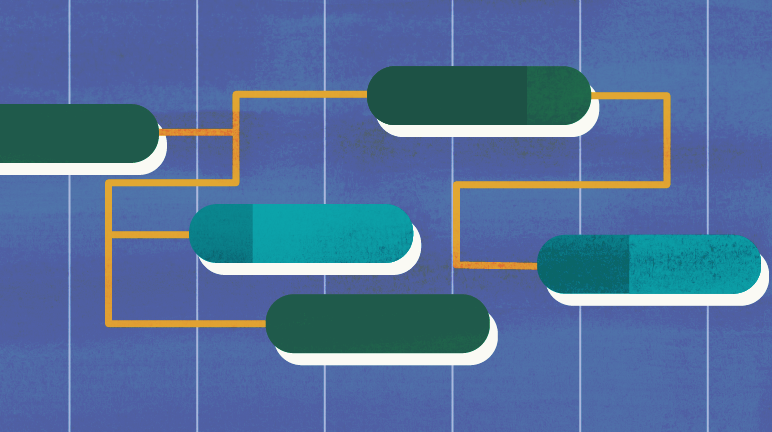project management · Mar 6, 2024
7 Best Practices of Task Dependencies to Ensure Project Efficiency

In the realm of project management, success isn't just about ticking off tasks on a to-do list; it's about orchestrating a symphony of interconnected activities, each relying on the other to create a harmonious outcome.
Task dependencies lie at the heart of this orchestration, dictating the order and relationships between tasks. Mastering these dependencies can spell the difference between project success and failure. In this article, we'll delve into seven best practices of task dependencies that can supercharge your project efficiency.
- 1. Understand the Types of Task Dependencies
- 2. Utilize Project Management Software
- 3. Establish Clear Dependencies Early On
- 4. Document Dependencies in Your Project Plan
- 5. Continuously Monitor and Update Dependencies
- 6. Identify and Mitigate Risks
- 7. Foster Open Communication
- Mastering Task Dependencies for Project Success
1. Understand the Types of Task Dependencies
Before diving into the nitty-gritty of task management, it's crucial to grasp the different types of task dependencies. There are four main types:
- Finish-to-Start (FS): The successor task cannot begin until the predecessor task is completed.
- Start-to-Start (SS): The successor task cannot start until the predecessor task has begun.
- Finish-to-Finish (FF): The successor task cannot be finished until the predecessor task is completed.
- Start-to-Finish (SF): The successor task cannot be finished until the predecessor task has begun.
Understanding these types will enable you to establish clear relationships between tasks and avoid bottlenecks in your project flow.
2. Utilize Project Management Software
Gone are the days of managing tasks with pen and paper (thankfully!). Today, a plethora of project management software tools exist to streamline the process. These tools not only allow you to define task dependencies but also automate updates, alerts, and notifications, keeping everyone on the same page. Popular options include Asana, Trello, and Microsoft Project.
3. Establish Clear Dependencies Early On
Clarity is king when it comes to task dependencies. Ambiguity can lead to confusion, delays, and ultimately, project failure. Therefore, it's imperative to establish clear dependencies early in the planning phase. Sit down with your team, map out the sequence of tasks, and identify any interdependencies. This proactive approach will pave the way for smoother execution down the line.
4. Document Dependencies in Your Project Plan
A well-documented project plan serves as the roadmap for your project journey. Within this plan, be sure to include a comprehensive list of task dependencies. This not only keeps everyone informed but also serves as a reference point when adjustments need to be made. Whether you're using Gantt charts, Kanban boards, or simple checklists, make sure task dependencies are front and center.
5. Continuously Monitor and Update Dependencies
Project dynamics are constantly evolving, and so too are task dependencies. As tasks progress, dependencies may shift, new dependencies may emerge, and others may become obsolete. It's essential to continuously monitor and update dependencies throughout the project lifecycle. Regular check-ins with your team and utilizing project management software can help ensure dependencies remain accurate and up-to-date.
6. Identify and Mitigate Risks
Task dependencies introduce a level of risk into your project. A delay in one task can cascade down the line, impacting subsequent tasks and ultimately jeopardizing project timelines. As part of your strategic planning process, identify potential risks associated with task dependencies and develop mitigation strategies. This proactive approach will help minimize the impact of unforeseen obstacles and keep your project on track.
7. Foster Open Communication
Last but certainly not least, fostering open communication is paramount to effectively managing task dependencies. Encourage transparency among team members, create channels for feedback and collaboration, and ensure everyone understands their role in the project ecosystem. By cultivating a culture of communication, you empower your team to address dependencies head-on and adapt to changing circumstances with agility.
Read more on transparency in communication.
Mastering Task Dependencies for Project Success
In conclusion, mastering task dependencies is a cornerstone of successful project management. By understanding the different types of dependencies, leveraging project management software, establishing clear dependencies early on, documenting dependencies in your project plan, continuously monitoring and updating dependencies, identifying and mitigating risks, and fostering open communication, you can optimize project efficiency and pave the way for project success. So, roll up your sleeves, dive into the world of task dependencies, and watch your projects soar to new heights.


